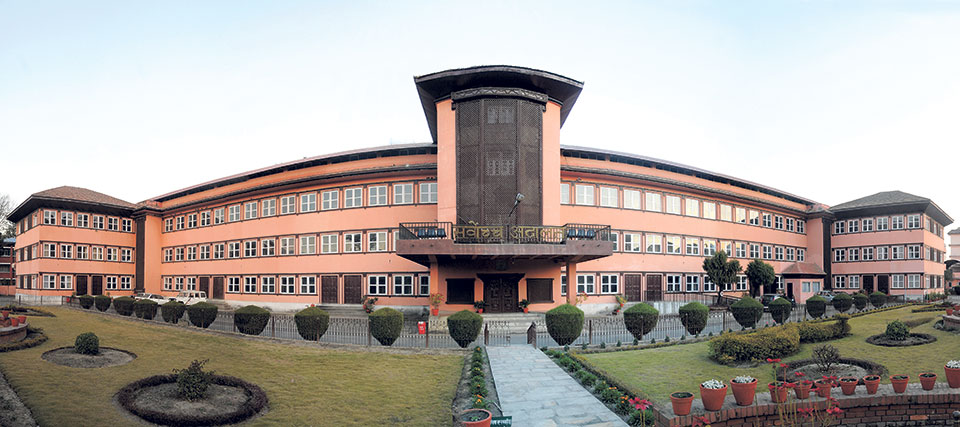The interim order issued by the Supreme Court (SC) on Tuesday to halt the immediate implementation of the government's decision to distribute funds to disqualified Maoist combatants is a laudable one. This decision has rightly highlighted the gross injustice of the government's reckless move, which would burden the already strained state treasury and neglect the welfare of the citizens. By issuing this interim order, the SC has shown its commitment to upholding justice, accountability, and transparency in the governance system.
The government's decision to distribute Rs 200,000 each to disqualified ex-Maoist combatants during a time of economic recession is highly questionable. This move would impose an unnecessary financial burden on the state treasury, which is already struggling. With the estimated cost surpassing Rs 800 million, it is evident that the government's decision lacks prudence and consideration for the economic crisis Nepal is facing at the moment. Moreover, it is important to recognize the underlying political motivations behind this decision. As the popularity of the Maoists has dwindled over time, they seem to be resorting to distributing funds as a means to buy support and loyalty. This desperate act reflects their waning influence in Nepali politics, further highlighting their irrelevance in shaping the nation's future. Allowing the Maoists to exploit the state coffers for their own political agenda would be a grave mistake.
JC recommends 35 judges for district courts and six judges for...

The past experiences with funds allocated to Maoist combatants raise concerns about the possibility of misappropriation in this instance as well. The Maoist leadership, including Prime Minister Pushpa Kamal Dahal, has been accused of embezzling large sums of money intended for the welfare of the combatants. This corruption scandal, known as the 'cantonment corruption scam,' showcased a lack of accountability and transparency within the Maoist ranks. Given this history of mismanagement and embezzlement, it is essential to exercise caution and prevent a similar scenario from unfolding. The distribution of funds to disqualified combatants, who were not genuine fighters but had registered with the hope of joining the national army, is both economically unsound and morally questionable.
As such, the government's decision had already raised serious doubts about its intentions and priorities, as it neglects the welfare of deserving citizens and undermines public trust. The decision to distribute funds to disqualified ex-Maoist combatants also exposes the prevailing lack of accountability and transparency in the governance system. Rather than prioritizing the citizens' welfare during a severe economic recession, the government appears to be swayed by political considerations. This decision demonstrates a disregard for the responsible management of public funds and reflects poorly on the state's ability to protect its citizens' interests. The Supreme Court's interim order serves as a much-needed check on the government's decision, ensuring that justice prevails. By calling both parties for further discussion, the SC demonstrates its commitment to resolving the matter through thorough examination and unbiased judgment.
The proactive decision of the apex court safeguards the principles of accountability, transparency, and fairness in the governance system. Apex court's interim order to halt the immediate implementation of the government's decision to distribute funds to disqualified Maoist combatants is commendable. This decision rightly questions the government's recklessness and lack of prudence during an economic recession, while also raising concerns about accountability and transparency. The intervention ensures that justice is upheld and prevents the misuse of state coffers for political gain. In the face of current economic hardship, the government must prioritize the welfare of all citizens and take steps to alleviate the crisis rather than adding to the financial burden.




































